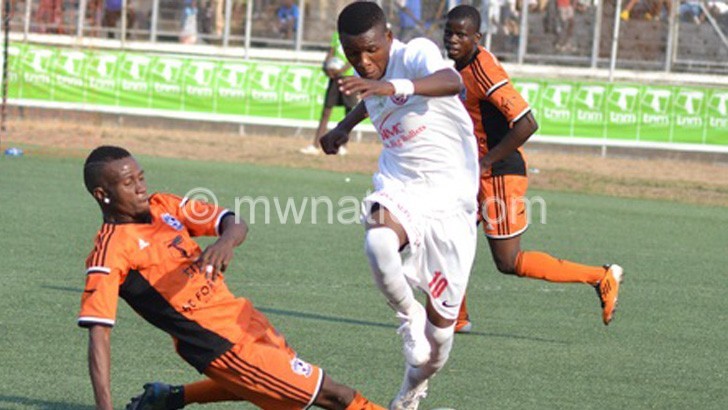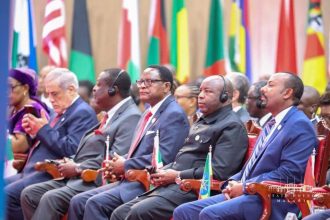Survival tactics: Sulom, clubs explore life without sponsorship
Football Association of Malawi (FAM) has said the Super League has to kick off with or without a sponsor and Super League of Malawi (Sulom) is banking on gate collections and revenue from broadcast rights as a stop-plug, Weekend Nation has learnt.
FAM general secretary Alfred Gunda said further delays could affect the coming season’s calendar.

Apart from gate collections and broadcast rights, Sulom non-sponsorship revenue comprises affiliation fees, FAM grants, fines and penalties and processing fees. However, clubs and analysts have argued that though the league can kick off using this revenue, a sponsor is still essential to act as a catalyst to trigger non sponsorship revenue.
Last season non sponsorship revenue from gate collections was at K420.579 million growing with million from K314.5 million in the 2015 season revenue. Sulom also raked in K24 million from radio and K80 million from television rights.
The revenue is six times what TNM commits to the league under an exclusive sponsorship deal worth K90 million per season.
One of Sulom’s founder and former president Sunduzwayo Madise said despite its capability, the league still needs a sponsor to raise revenue for most of its operations.
Madise said Sulom needs a sponsor as a catalyst to trigger the non sponsorship revenue.
He said: “Sulom’s existence for some 20-plus years now has shown that it can deliver a league; year-in, year-out. Normally, the sponsorship that leagues or clubs get is just a fraction of the total revenue that is needed for operations. Sulom made more money from its non-sponsorship revenue and this is how the books of a healthy league should look like.
“But does that mean the league can survive without sponsorship? Well, yes and no. Yes, because on paper, it can raise enough revenue to foot the costs of operations. No, because it needs a catalyst to trigger this raising of revenue. The sponsorship acts as a catalyst. So, if push comes to shove, I would advise Sulom to get the minimal amount just to ensure that the league has a catalyst to bring in the ancillary revenue.”
Most of the clubs we interviewed were of the view that clubs get peanuts from gate revenue and prize money.
The clubs argued that survival without sponsorship will only be meaningful if gate collections sharing system is revised to ensure that more money goes to them.
Out of the K420 million gate revenue raised last season, the 16 teams shared K158 million which is 38 percent of the gross collections.
Sulom and FAM got K31 million each while ground owners were paid 19 percent of the gross (K79 million).
The league-runners paid service providers such as police, stewards, cashiers K103 million from the gate collections.
Sulom Treasurer Tiya Somba-Banda said with proper planning, the league can kick off without a sponsor although TNM sponsorship withdrawal had caught them by surprise.
“We need to realise the leagues full potential. With proper planning, we should be in a position to salvage something. The TV rights revenue is very critical. If we can realise its full potential, we should be able to pay even prize money,” he said.
Somba-Banda said most of the operations run on gate collections revenue while TNM sponsorship goes towards marketing, advertisements and promotional materials, clubs’ K1 million subvention and prize money.
“Actually, at the moment, 99 percent of the operations are covered from gate revenue, including referees fees and running the secretariat. We need to work on finances for prize money and official match balls. That’s where we need a partner. We should be able to engage a partner who believes in this untapped football market potential,” he said.
Silver Strikers general secretary Thabo Chakaka-Nyirenda supported the Sulom treasurer’s idea.
“Remember the league operated without a sponsor for some time. When we talk of sponsorship we refer to sponsorship that is meaningful. Sulom should up its advertising and marketing strategies to improve on the revenue generated,” he said.
On the prospective sponsor he said: “Sulom must not relent in its efforts to get not only one sponsor, but different sponsors. It can go beyond Malawi in search for sponsors as well as adverts. It can also approach companies that have presence in Malawi but incorporated outside Malawi.”
But Mzuzu University (Mzuni) FC general secretary Khumbo Kumwenda called for overhaul of gate revenue sharing system if the league is to survive.
He said: “If the league is to start without a sponsor, maybe we need to revisit sharing of gate collections so that a certain amount is directed towards prizes without really affecting the revenue that goes to clubs. That K420 million is only on paper. Look also at how it is split. Very little went to clubs. Sharing of gate collections leaves a lot to be desired. You are talking of broadcast and television revenue. Have any clubs benefited from that? Some of these figures only exist on paper.
“Clubs are struggling out there. We talked of TV rights, where are we now? As much as possible, the league needs a sponsor. Theirs is money you can see being spent on something real. The only challenge I see is that the prizes are inadequate. You spend tens of millions of kwacha competing in the league for very little prizes, if any. Only top four teams are guaranteed prizes which are even way below how much they spend.”
TNM and Sulom first signed an agreement from 2006 to 2009. The contract was extended for three years up to 2012.
In April 2012, TNM then extended the contract for another five years up to April 2017.
But TNM has withdrawn sponsorship following Competitions and Fair Trade Commission’s ruling that the agreement between the two sides has clauses that are against fair trade practices. n





